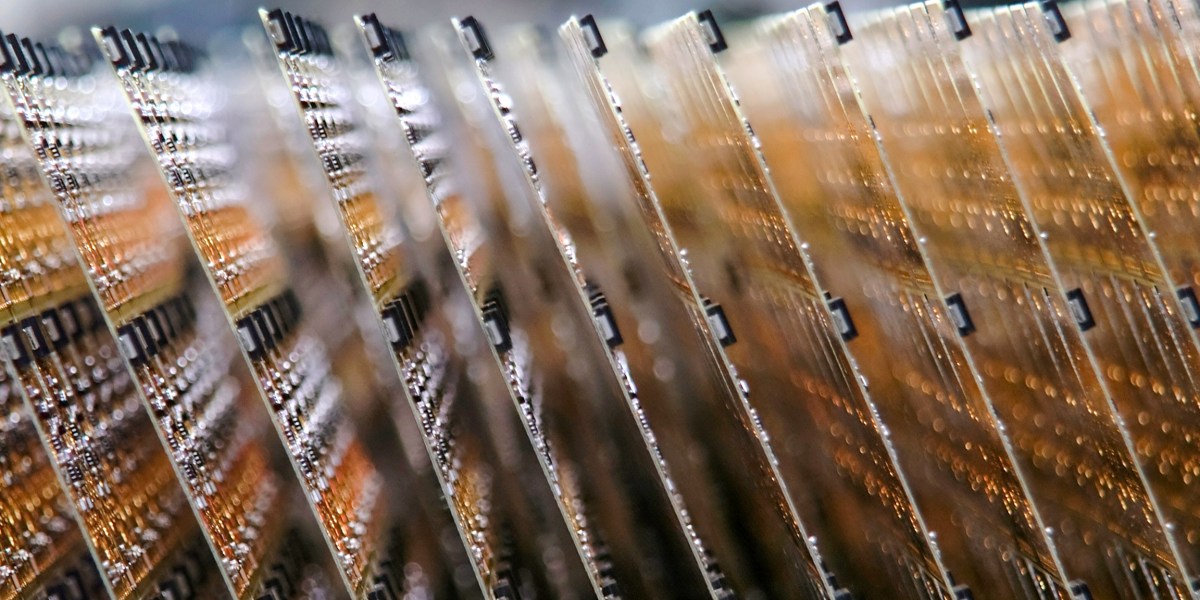Thintronics is promising a product purpose-built for the computing demands of the AI era—a suite of new materials that the company claims have higher insulating properties and, if adopted, could mean data centers with faster computing speeds and lower energy costs.
The company is at the forefront of a coming wave of new US-based companies, spurred by the $280 billion CHIPS and Science Act, that is seeking to carve out a portion of the semiconductor sector, which has become dominated by just a handful of international players. But to succeed, Thintronics and its peers will have to overcome a web of challenges—solving technical problems, disrupting long-standing industry relationships, and persuading global semiconductor titans to accommodate new suppliers.
“Inventing new materials platforms and getting them into the world is very difficult,” Thintronics founder and CEO Stefan Pastine says. It is “not for the faint of heart.”
The insulator bottleneck
If you recognize the name Ajinomoto, you’re probably surprised to hear it plays a critical role in the chip sector: the company is better known as the world’s leading supplier of MSG seasoning powder. In the 1990s, Ajinomoto discovered that a by-product of MSG made a great insulator, and it has enjoyed a near monopoly in the niche material ever since.
But Ajinomoto doesn’t make any of the other parts that go into chips. In fact, the insulating materials in chips rely on dispersed supply chains: one layer uses materials from Ajinomoto, another uses material from another company, and so on, with none of the layers optimized to work in tandem. The resulting system works okay when data is being transmitted over short paths, but over longer distances, like between chips, weak insulators act as a bottleneck, wasting energy and slowing down computing speeds. That’s recently become a growing concern, especially as the scale of AI training gets more expensive and consumes eye-popping amounts of energy. (Ajinomoto did not respond to requests for comment.)
None of this made much sense to Pastine, a chemist who sold his previous company, which specialized in recycling hard plastics, to an industrial chemicals company in 2019. Around that time, he started to believe that the chemicals industry could be slow to innovate, and he thought the same pattern was keeping chipmakers from finding better insulating materials. In the chip industry, he says, insulators have “kind of been looked at as the redheaded stepchild”—they haven’t seen the progress made with transistors and other chip components.
He launched Thintronics that same year, with the hope that cracking the code on a better insulator could provide data centers with faster computing speeds at lower costs. That idea wasn’t groundbreaking—new insulators are constantly being researched and deployed—but Pastine believed that he could find the right chemistry to deliver a breakthrough.

